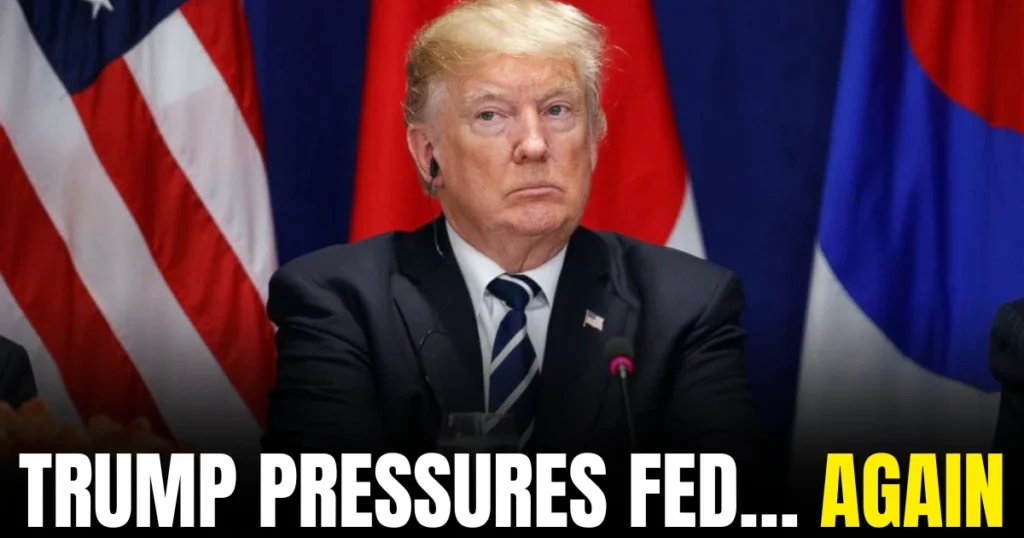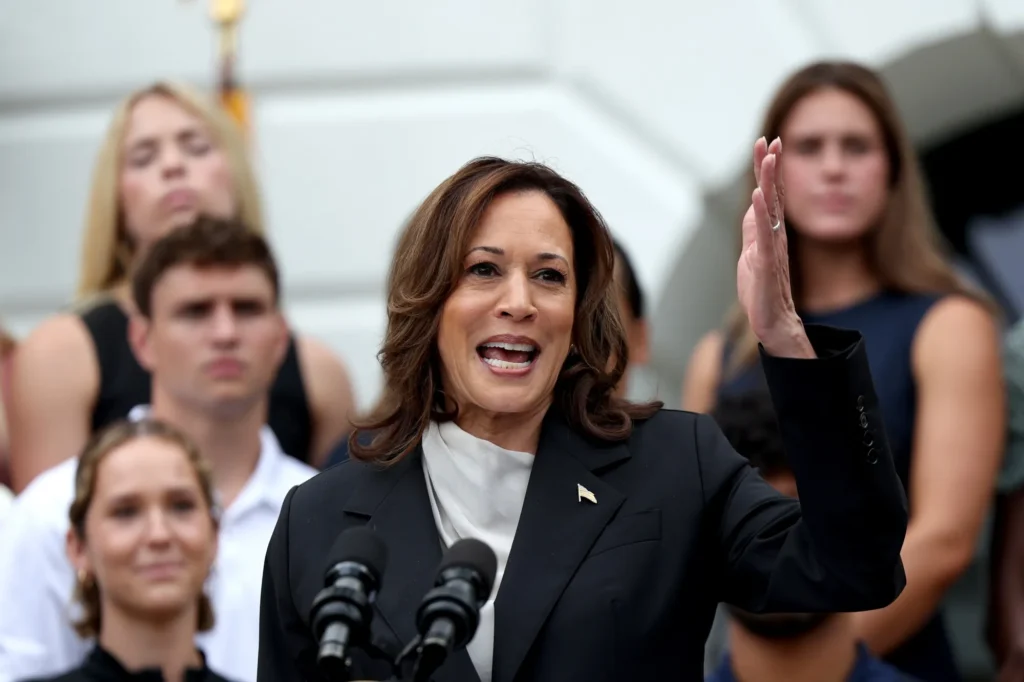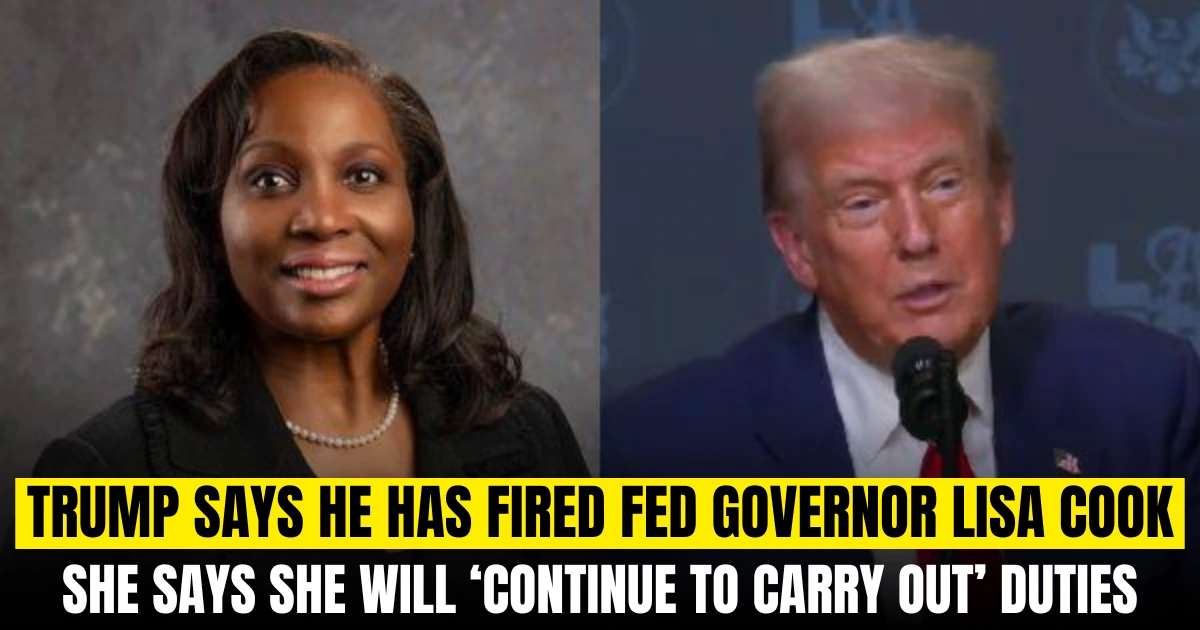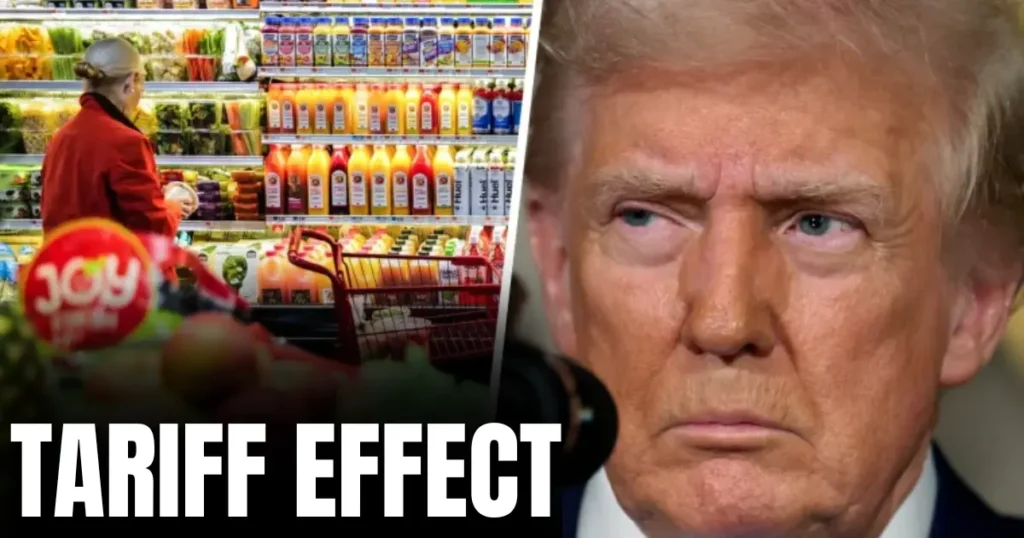Donald Trump claims to have fired Federal Reserve Governor Lisa Cook over alleged mortgage fraud, sparking legal challenges and raising concerns about Fed independence, U.S. markets, and economic credibility.
Table of Contents
Introduction
In a historic and unprecedented move, President Donald Trump announced on Monday that he has fired Federal Reserve Governor Lisa Cook, citing “sufficient cause” related to alleged mortgage fraud.
Lisa Cook, however, refuses to step down, claiming that Trump has no legal authority to remove her and vowing to continue carrying out her duties. This escalating confrontation sets the stage for a major legal and economic showdown that could impact U.S. markets, Federal Reserve independence, and global financial stability.
The development marks the first time in the Federal Reserve’s 111-year history that a sitting president has attempted to fire a Fed governor.
Why Trump Claims He Fired Lisa Cook

Trump’s announcement came via a letter posted on his social media platform, where he accused Cook of:
- “Deceitful and potentially criminal conduct” in financial matters
- Taking out two mortgages on properties both claimed as primary residences
- Displaying “gross negligence” in financial transactions
In the letter, Trump wrote:
“I have determined that there is sufficient cause to remove you from your position.”
Trump also argued that Cook’s alleged misconduct undermines her competence and trustworthiness as a regulator overseeing the U.S. financial system.
Lisa Cook’s Response: “I Will Not Resign”
Lisa Cook, the first Black woman ever appointed as a Federal Reserve Governor under President Joe Biden in 2022, strongly pushed back against Trump’s claims:
“President Trump purported to fire me ‘for cause’ when no cause exists under the law, and he has no authority to do so. I will not resign. I will continue to carry out my duties to help the American economy as I have been doing since 2022.”
Cook has also stated that she will not be bullied into stepping down and plans to fight Trump’s order in court.
Does the President Have the Power to Fire a Fed Governor?

The legality of Trump’s action is highly disputed.
Under the Federal Reserve Act, a president may remove a Fed board member “for cause”—but the law does not clearly define what qualifies as cause.
- Legal experts argue that firing a governor over unproven allegations may not meet the threshold.
- The Justice Department is still investigating the claims and has not charged Cook with any wrongdoing.
- This is expected to trigger a court battle, potentially going all the way to the Supreme Court.
Former federal prosecutor Shan Wu told CNN:
“It’s definitely going to get litigated. This is uncharted legal territory.”
Political Fallout: Trump vs. The Fed
This confrontation intensifies an ongoing power struggle between Trump and the Federal Reserve.
- Trump has repeatedly criticized the Fed for keeping interest rates high and “hurting the U.S. economy.”
- By removing Cook, Trump appears to be asserting political influence over a historically independent institution.
- Economists and lawmakers warn that this could undermine global confidence in the U.S. financial system.
Market Reaction: Dollar Falls, Gold Rises
Trump’s announcement immediately rattled financial markets:
- U.S. Dollar Index → Dropped 0.3% after the news.
- U.S. Stock Futures:
- Dow futures fell 100 points (-0.2%)
- S&P 500 futures slipped 0.3%
- Nasdaq 100 futures dropped 0.5%
- Gold Prices → Rose 0.45% as investors sought safe-haven assets.
If this conflict escalates, analysts warn of:
- Higher borrowing costs
- A weaker dollar
- Rising market volatility
- Potential damage to the U.S.’s global financial credibility
Federal Reserve Independence at Risk
The Federal Reserve exists as an independent body precisely to shield monetary policy from political interference. Its job is to balance:
- Stable Prices → Controlling inflation
- Maximum Employment → Supporting job growth
But Trump’s move threatens to turn the Fed into a political tool, undermining confidence among investors, banks, and foreign governments.
Alan Blinder, a former Fed vice chair, warned:
“The bigger picture is sadly simple: The Fed is designed to be independent of politics, for very good reasons. He is trying to end that and make it an arm of the Trump administration, which will be very bad for monetary policy if it happens.”
Democrats Call It a “Power Grab”

Leading Democrats immediately denounced Trump’s move. Senator Elizabeth Warren called the firing:
“An authoritarian power grab that blatantly violates the Federal Reserve Act and must be overturned in court.”
Democrats argue that Trump’s actions represent a direct attack on the U.S.’s institutional safeguards, setting a dangerous precedent for political control of monetary policy.
What Happens Next?
Several questions remain unanswered:
- Will Lisa Cook continue to participate in Fed meetings, including the upcoming September 16–17 policy meeting?
- If courts block Trump’s firing attempt, does his letter hold any power?
- Could Trump try to nominate a replacement even before litigation is settled?
- Will this shake investor confidence and accelerate market selloffs?
Cook’s attorneys have already vowed to fight back aggressively. Her lawyer, Abbe David Lowell, stated:
“We will take whatever actions are needed to prevent his attempted illegal action.”
Economic Impact: Why This Matters
The conflict comes at a critical time for the U.S. economy:
- Inflation is stabilizing but still above target.
- Stock markets are sensitive to Fed rate decisions.
- Global investors watch Fed independence closely.
If markets lose confidence in the Fed’s autonomy, the U.S. risks:
- Capital outflows from foreign investors
- Higher interest rates demanded on U.S. debt
- A weakening dollar that drives up import costs
FAQs
Q1: Why did Trump fire Lisa Cook?
Trump cited mortgage fraud allegations and financial misconduct, though Cook denies wrongdoing and has not been charged.
Q2: Can the president legally fire a Fed governor?
It’s unclear. The law allows removal “for cause”, but courts may rule on whether Trump’s claims meet that threshold.
Q3: How did financial markets react?
The dollar dropped, gold prices climbed, and stock futures slid following Trump’s announcement.
Q4: What happens if Cook wins in court?
She would remain on the Fed board and continue shaping U.S. monetary policy.
Q5: Why is this event significant?
This is the first time in U.S. history a president has tried to fire a sitting Fed governor, raising concerns about central bank independence and economic stability.
Conclusion
Trump’s attempt to fire Lisa Cook has set off a political, legal, and economic firestorm.
With markets reacting, lawsuits looming, and global investors watching closely, this battle could shape the future of the Federal Reserve’s independence and U.S. economic credibility.
Whether Cook stays or goes, one thing is certain: the world’s largest economy is entering uncharted waters, and the outcome could have ripple effects far beyond Washington.

